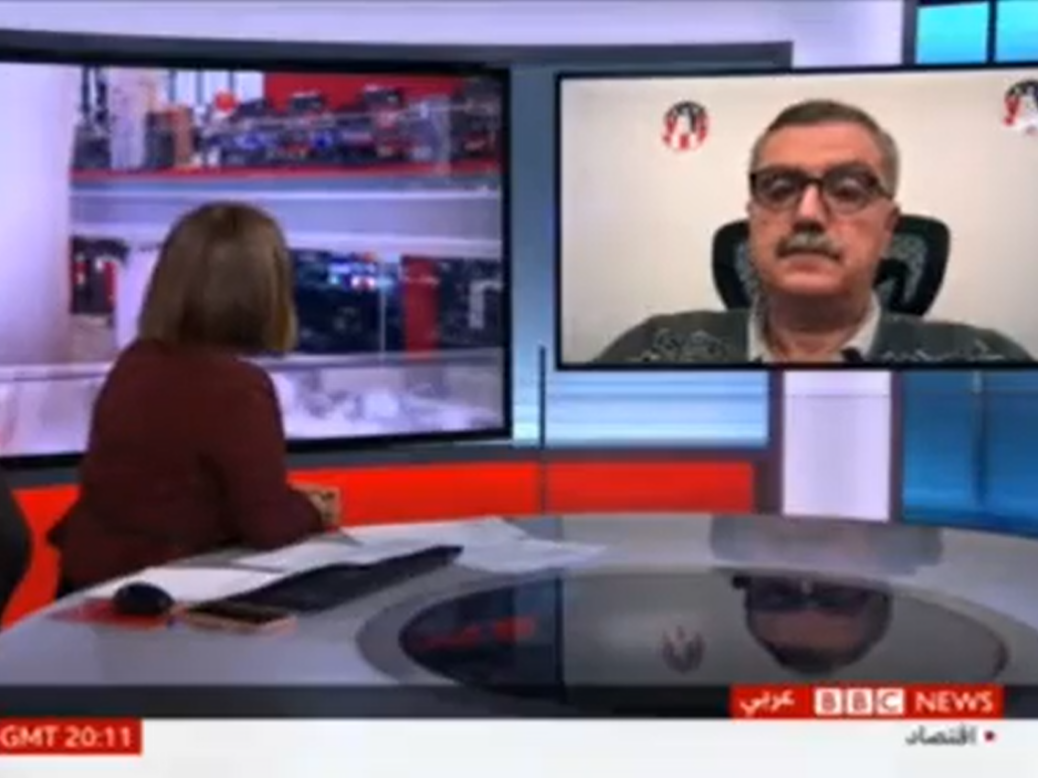
BBC Arabic has still not paid contributors some ten days after being publicly shamed on live TV by one of its interview guests.
Meanwhile, the BBC has settled a dispute with around a dozen employees at its Istanbul bureau who had been on strike because of below inflation pay rises over two years.
The Arabic language news channel is available on satellite TV and is part of the BBC World Service.
The BBC blamed “a technical defect” for its failure to pay contributors over the past two years.
The broadcaster’s Arabic arm apologised for the debts in a tweet on 22 January, but Press Gazette understands payments to contributors are still outstanding.
The issue of unpaid contributor fees at BBC Arabic spilled into public view on 21 January when one guest, political commentator Mehdi Eliefifi, interrupted his response to a presenter’s question to call upon the BBC to pay him the money it owed him.
According to The New Arab, Eliefifi asked: “An important topic I would like to discuss is why for two years the BBC has not paid any dues to us, where are those responsible?”
The consultant held up a sign to his camera which asked, “Where is My Money?” and named two of BBC Arabic’s editors.
Open Democracy spoke with Eliefifi and two other contributors to BBC Arabic who also say they have not received owed payments from the corporation.
Eliefifi told the website the BBC owed him $10,000 (£7,400) for appearances dating back to 2019. Another guest, Ahmed Fathi, said it “owes him several thousands of dollars from appearances over two or three years”.
A third, Gaza Strip-based freelance Fatma Eddaama, told Open Democracy she had not been paid by the BBC since 2019, despite having done work for the broadcaster as recently as the May 2021 Israel-Hamas conflict.
Shortly after Eliefifi’s remarks, BBC Arabic stated on Twitter that it does not make direct payments to contributors.
Asked about the missing payments, a BBC spokesperson referred Press Gazette to a series of later tweets on the matter made by BBC Arabic.
The tweets say that “we are aware of a technical defect in the payment mechanism” which led to the delay, and provide an email address for still-unpaid guests to contact.
Fathi told Press Gazette that, as of Monday, he had still not been paid. Fathi said he emailed the address provided in BBC Arabic’s tweet, but besides a brief acknowledging response, had not heard back a week later.
The contributors’ complaints are not the only criticism the BBC has faced recently over pay for overseas workers.
This weekend, BBC employees in Istanbul declared victory following a two-week strike over pay.
The strike was called in December after staff were offered a pay rise significantly lower than Turkey’s soaring inflation rate, resulting in a substantial real-terms pay cut.
The journalists ultimately agreed a rise of 32%, and have also secured additional health benefits. Al Jazeera reports the strike was “the first at a media organisation in Turkey in 13 years”.
The BBC World Service, of which BBC Arabic is part, has grown in recent years thanks to extra funding from the Foreign and Commonwealth Office.
But director-general Tim Davie warned last week that, should the BBC’s licence fee funding be squeezed as suggested by Culture Secretary Nadine Dorries , the World Service could face cuts.
Picture: Screenshot of BBC Arabic via Twitter
Email pged@pressgazette.co.uk to point out mistakes, provide story tips or send in a letter for publication on our "Letters Page" blog
